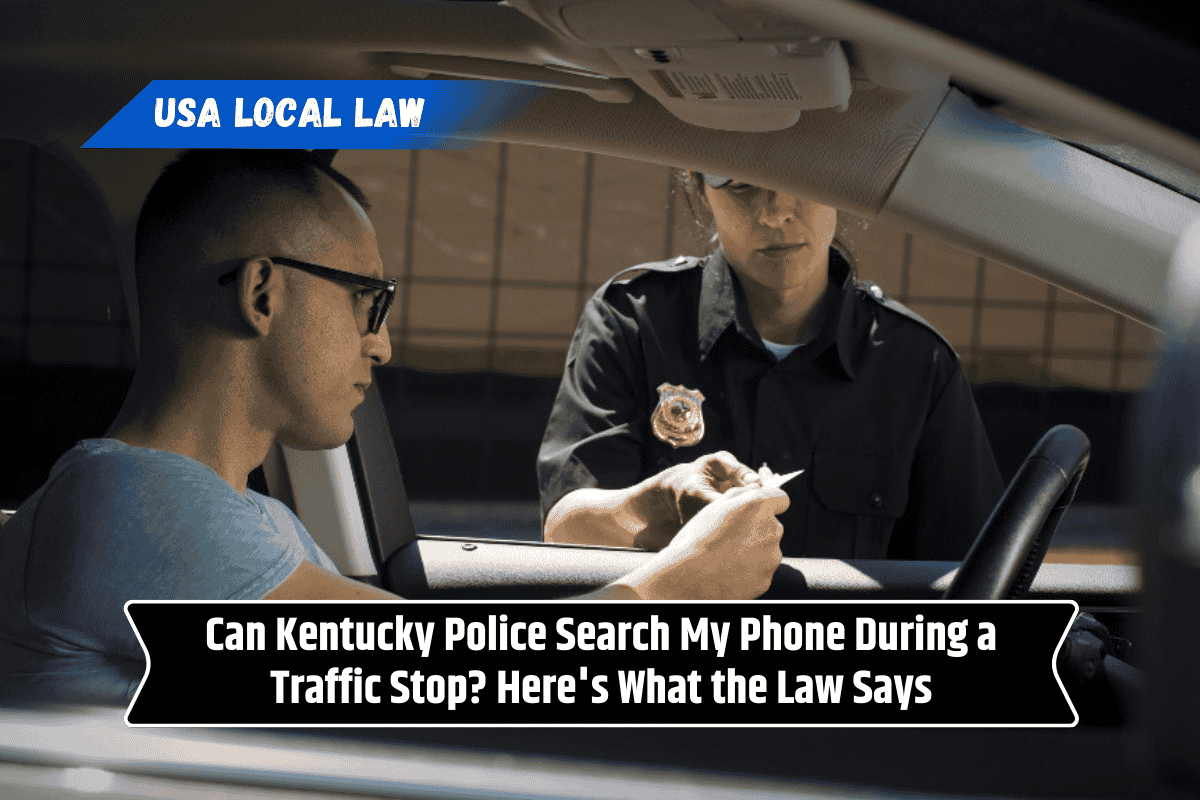If you’ve ever been pulled over while driving in Kentucky, you might wonder: Can the police search my phone? It’s a common concern, especially since phones today hold so much personal information—texts, emails, photos, bank info, and more.
Let’s break down the laws in Kentucky so you know your rights and what to expect during a traffic stop.
Do Police Have the Right to Search Your Phone in Kentucky?
No, police in Kentucky cannot search your phone during a traffic stop without your permission or a proper warrant. The Fourth Amendment of the U.S. Constitution protects your right to privacy, which includes the contents of your mobile phone.
Even if the police pull you over for speeding, a broken tail light, or expired registration, that doesn’t give them automatic access to your phone.
When Can Police Search Your Phone?
There are only a few situations where a Kentucky police officer can legally search your phone:
You give them permission: If you say “yes” when asked, you’ve given them consent to search it.
They have a search warrant: The officer must show you a warrant signed by a judge.
There’s an emergency: If the officer believes there’s a serious and immediate threat, like a kidnapping or terrorist attack, they might be allowed to search without a warrant.
But in most routine traffic stops, none of these situations apply—so you can legally say no.
Can Police Take Your Phone Without Searching It?
Yes, in some cases, the police may take or temporarily hold your phone as part of an investigation. But even if they take it, they still can’t go through it unless:
You allow them to
They get a warrant
There’s an emergency situation
If they do seize your phone, ask if you’re free to leave and contact a lawyer as soon as possible.
What Should You Do If Asked to Hand Over Your Phone?
If an officer asks to see your phone, stay calm and respectful. Here’s how you can respond:
Politely say no: “Officer, I do not consent to a search of my phone.”
Don’t argue or try to hide your phone—that could make things worse.
Record the interaction if you feel your rights are being violated (if it’s safe to do so).
You have the right to protect your privacy. Just remember, how you say things matters. Being rude or aggressive can lead to unnecessary problems, even if you’re legally correct.
Can They Force You to Unlock Your Phone?
This part is tricky. The law in this area is still developing, but here’s the general idea:
If your phone is locked with a passcode or password, the police usually cannot force you to unlock it.
If your phone uses facial recognition or fingerprint unlock, they might try to use your face or finger to unlock it. Courts have had different opinions on whether this is allowed.
To stay safe, it’s better to turn off Face ID or fingerprint unlock if you think a search might happen. You can also quickly press your phone’s power button 5 times to lock it (on most phones).
What About Dashcams or Phone Video Recording?
In Kentucky, it is legal to record the police, including traffic stops, as long as you don’t interfere with their duties. You have the right to record using your phone or dashcam for your own safety and protection.
Just make sure:
You don’t block the officer or refuse to comply with basic instructions.
You let them know you’re recording if they ask.
In Kentucky, your phone is protected under the law—just like your home or car. Police cannot search your phone during a traffic stop unless they have your permission, a warrant, or a valid emergency reason.
Knowing your rights is the first step in protecting your privacy. Always stay calm, be respectful, and don’t be afraid to say “no” politely if you’re asked to hand over your phone.
